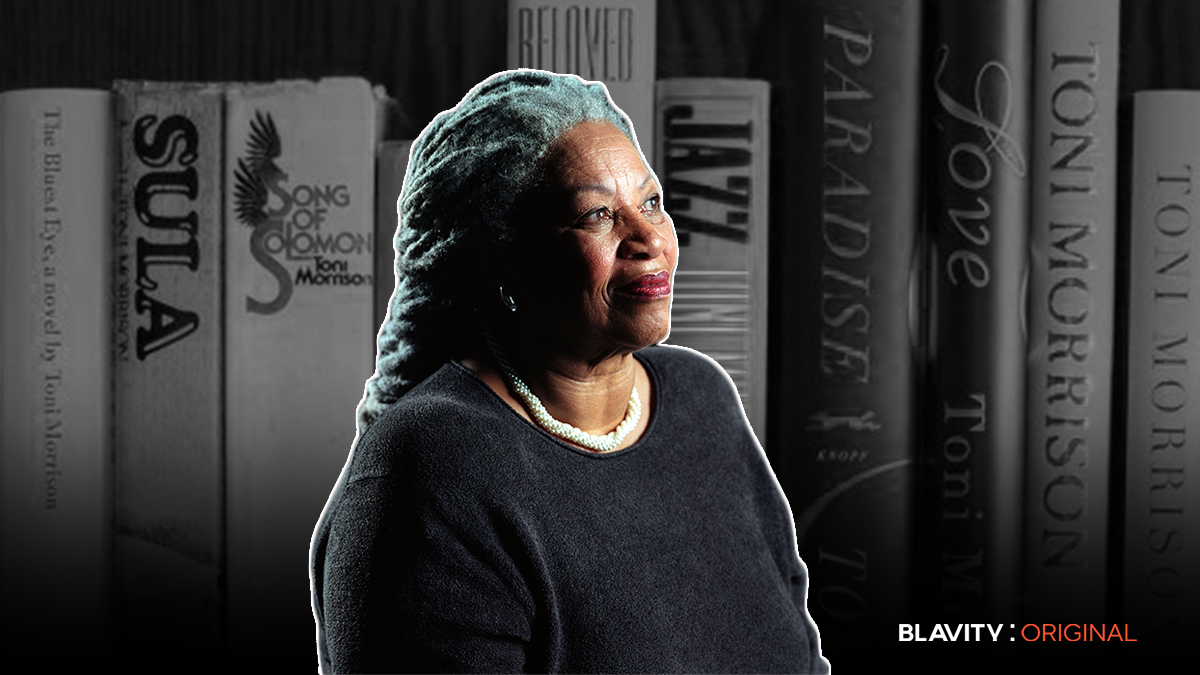Chloe Ardelia Wofford was born February 18, 1931 in Lorain, Ohio, and died August 5, 2019 in New York City. She was globally known as the literary icon Toni Morrison. She was more personally considered a daughter, sister, mother, grandmother, auntie, mentor, teacher and friend. She was and will always be Black excellency.
For many Black communities, Morrison is the mother of the Black literary imagination. Morrison, a famed author, and before that editor, has done for Black text what Shakespeare has done for the English language: shaped it, shifted it, stretched it and created a standard that may very well be impossible to stand on. Complexities aside, and in contrast to Shakespeare, Morrison's world-building was steeped in the familiar.
She created whole worlds that are dedicated to Blackness with such fictional towns as Ruby from the novel Paradise and Mercy from the story Love. When she mentioned The Bottom in the town of Medallion from her novel Sula, Black folks knew exactly what was meant. Morrison also introduced society to themselves via a dynamic family of characters like Pecola, Cholly, Milkman Dead, Pilate, Guitar, Sethe, Denver, Twyla, Dorcas, Joe Trace and so many more.
The literary great catered to Africanness on and off the page. As an editor at Random House, she assisted in conjuring 1974’s The Black Book, an atlas of sorts that compiled all things Black, including art, life, news and historical information. During her time at the publishing house, Morrison established a platform for Black writers. She published the works of Toni Cade Bambara, Angela Davis, Sonia Sanchez and Chinua Achebe among others. At this time, she penned her first novel The Bluest Eye, in 1970. Morrison would go on to author 10 more novels, several children's book and a slew of essays and nonfiction.
Morrison’s Black imaginations and stellar writing has catapulted her work into canonical status. The great American novelist has won numerous outstanding literary honors. Among them are the 1988 American Book Award and 1988 Pulitzer Prize for Fiction for Beloved, the 1993 Nobel Prize for Literature , for which she is the first Black woman to receive, and the 2012 Presidential Medal of Freedom.
When it comes to the world of writing, Morrison did that and she did it quite well. Through such seamless stitching of words, she told us a few things about life. She did so with care and candor. In memory of Morrison, here are five must read novels and five captivating quotes from our dearly departed beloved.
1. The Bluest Eye
Morrison’s debut text about the longings of a young Black girl, being raised in a seedbed of trauma, set the stage for the exceptional writing that was yet to come.
"Love is never any better than the lover. Wicked people love wickedly, violent people love violently, weak people love weakly, stupid people love stupidly, but the love of a free man is never safe. There is no gift for the beloved." —The Bluest Eye, 1970
2. Jazz
Jazz is the sixth novel by Morrison. The tale takes place in Harlem, New York, and follows the romantic affair between a young teenager, a middle aged man and, frighteningly, his wife. It adds bizarre meaning to the term, "It's complicated."
"Black women were armed, black women were dangerous and the less money they had the deadlier the weapon they chose." —Jazz, 1992
3. Playing In The Dark
Morrison calls out the white literary gaze in Playing in the Dark. The nonfiction text is a full read for the filth on the ways in which white writers and publishers portray Blackness in literary works. Morrison pulls no punches as she points 'em out and calls old masters to the carpet.
"These remarks should not be interpreted as simply an effort to move the gaze of African-American studies to a different site. I do not want to alter one hierarchy in order to institute another. It is true that I do not want to encourage those totalizing approaches to African-American scholarship which have no drive other than the exchange of dominations—dominant Eurocentric scholarship replaced by dominant Afrocentric scholarship." — Playing In The Dark, 1992
4. Beloved
The seminal text revolves around slavery, trauma and "rememory," a term coined by Morrison that expresses the recalling of trauma and how it affects individuals and collectives. It is narrated through the traumatic death of a daughter at the hands of her enslaved mother.
"Freeing yourself was one thing; claiming ownership of that freed self was another."— Beloved, 1987
5. The Song of Solomon
Finding and freeing oneself is no cakewalk. The Song of Solomon shares the Milkman's journey from f***boy to freed man and the events along the way. Just as interesting as the protagonist's life are the characters he encounters in his walk.
"She was the third beer. Not the first one, which the throat receives with almost tearful gratitude; nor the second, that confirms and extends the pleasure of the first. But the third, the one you drink because it's there, because it can't hurt, and because what difference does it make?" — Song of Solomon, 1977
The above texts are but a few of Morrison's timeless classics.. Having access to such a legacy should compel all to immerse themselves in her entire body of work. Too, set your eyes on The Pieces I Am, a recently released documentary featuring Morrison and chronicling her literary footsteps. Peep the trailer below.
YouTube | Magnolia Pictures & Magnet Releasing
Morrison was preceded in death by her son Slade and is survived by her son Harold Ford Morrison and three grandchildren. We lost a real one, Y'all.
